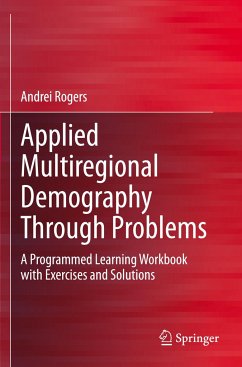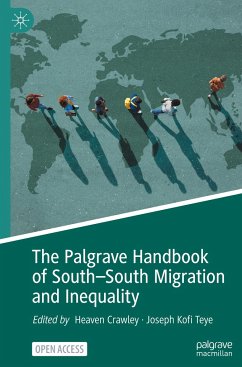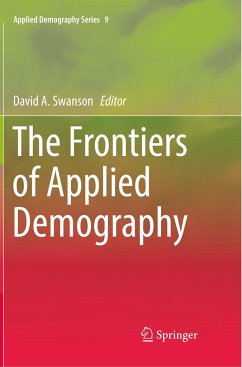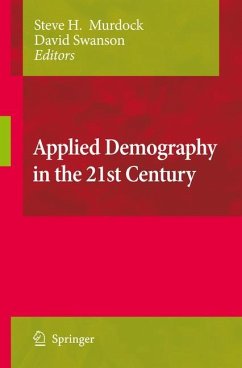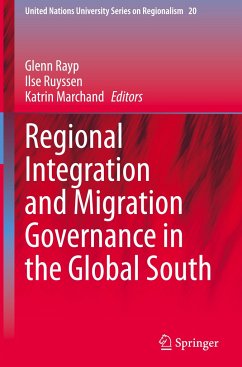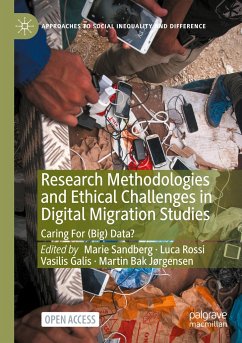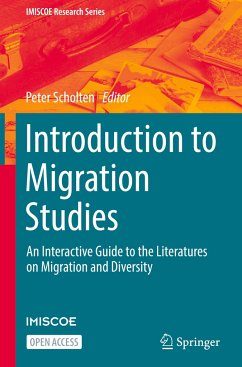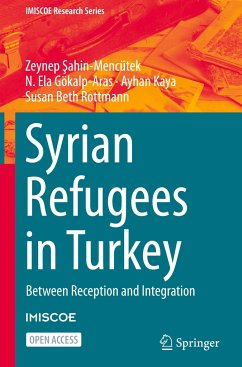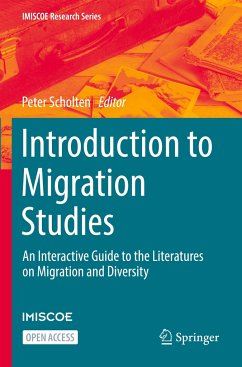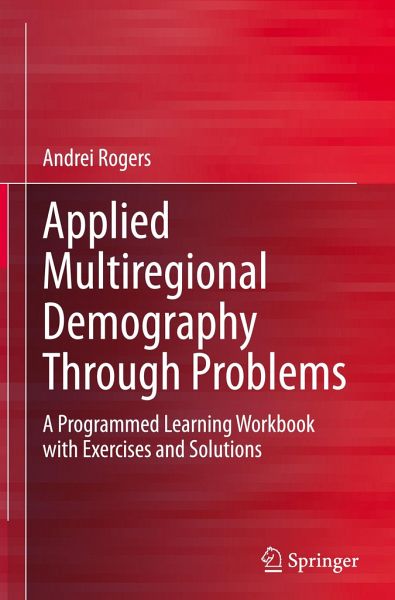
Applied Multiregional Demography Through Problems
A Programmed Learning Workbook with Exercises and Solutions
Versandkostenfrei!
Versandfertig in 6-10 Tagen
38,99 €
inkl. MwSt.
Weitere Ausgaben:

PAYBACK Punkte
19 °P sammeln!
Written by the 2018 Mindel C. Sheps Award winner, this textbook offers a unique method for teaching how to model spatial (multiregional) population dynamics through models of increasing complexity. Each chapter in this programmed workbook starts with a descriptive text, followed by a sequence of exercises focused on particular multiregional models, of increasing complexity, and then ends with the solutions.It extends the current developments in the spatial analysis of social data towards improving our understanding of dynamics and interacting change across multiple populations in space. Framew...
Written by the 2018 Mindel C. Sheps Award winner, this textbook offers a unique method for teaching how to model spatial (multiregional) population dynamics through models of increasing complexity. Each chapter in this programmed workbook starts with a descriptive text, followed by a sequence of exercises focused on particular multiregional models, of increasing complexity, and then ends with the solutions.
It extends the current developments in the spatial analysis of social data towards improving our understanding of dynamics and interacting change across multiple populations in space. Frameworks for analyzing such dynamics were first proposed in multiregional demography, over 40 years ago. This book revisits these methods and then illustrates how they may be used to analyze spatial data and study spatial population dynamics.
Topics covered include spatial population dynamics, population projections and estimations, spatial and age structure of migration flows and much more. As such this innovative textbook is a great teaching and learning tool for teachers, students as well as individuals who want to study demographic processes across space.
It extends the current developments in the spatial analysis of social data towards improving our understanding of dynamics and interacting change across multiple populations in space. Frameworks for analyzing such dynamics were first proposed in multiregional demography, over 40 years ago. This book revisits these methods and then illustrates how they may be used to analyze spatial data and study spatial population dynamics.
Topics covered include spatial population dynamics, population projections and estimations, spatial and age structure of migration flows and much more. As such this innovative textbook is a great teaching and learning tool for teachers, students as well as individuals who want to study demographic processes across space.





